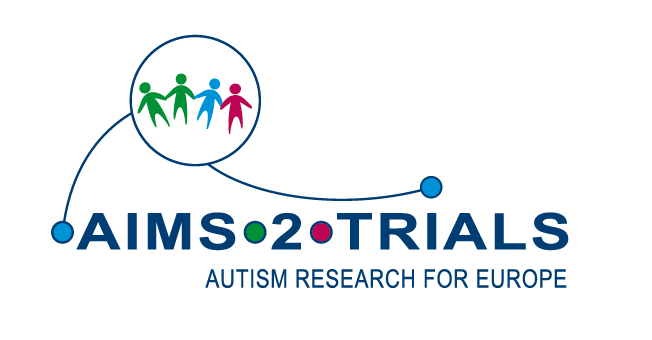The A-Reps are a group of autistic people, parents and carers from across Europe who have agreed to bring their perspectives on being autistic or caring for an autistic loved one to the AIMS-2-TRIALS research programme. They are coordinated by a team at the University of Cambridge and were recruited in early 2019 from nearly 100 European applications. Recruitment attempted to account for a range of strengths, needs and difficulties of autistic people, factors such as gender, age, intellectual ability, nationality, life experience and interests. Selection was made with the support of the A-Reps Steering Committee, a small group of interested people invited by Autistica to help with the running of A-Reps throughout the project.
A-Reps’ involvement so far:
To date, as well as providing input on study design and interpretation of research findings, A-Reps have shaped the design of research protocols and questionnaires for various studies. These include the preschool study, LEAP study and first clinical trial. They have attended specially created webinars about biomarkers, biomarker development and genetics, which included opportunities for questions and discussion. This webinar series will continue with topics such as ethics and data sharing, to ensure the A-Reps have the background knowledge required to engage in discussions about AIMS-2-TRIALS research and sustainability, for example in the ethics working group.
The webinars have also led to the formation of two working groups: one on biomarker development, and the inclusion of A-Reps in the ‘Trials Advisory Board’, which contributes to decisions about the second clinical trial. In another particularly significant development, discussion with A-Reps at the annual AIMS-2-TRIALS meeting in 2019 has led to the creation of a new role in the consortium to bolster its coordination of ethical issues.
In addition, a small group of A-Reps with learning disabilities has developed ideas for future educational activities for the consortium and provided feedback on easy-to-read materials for a study looking at service accessibility.
Before the outbreak of Covid-19, A-Reps were surveyed about their understanding of their role. Responses can be seen in the box on the right hand side of this page.
A-Reps reported that engagement activities have so far been well structured and that they appreciate email reminders and written materials prior to video meetings. Many A-Reps said that they have valued feedback from researchers regarding how their input had been taken on board and felt that their input was valued.
A-Reps’ understanding of the role:
- acting as an advocate for autistic people’s rights
- representing the autistic community
- helping researchers understand the views of autistic people and what they might want or need from research and interventions
- helping to make the work more autism-friendly
- raising awareness of issues relating to autism
- contributing to communication of research findings
- improving outcomes for both autistic people and researchers
- monitoring and providing feedback on ethical issues
- improving relationships between autistic people and researchers and addressing mistrust that may be present between the different groups
- learning about the science and research practice relating to autism
- reviewing differences experienced by autistic people when accessing services across Europe, in order to make a positive impact on European autism policies
- working closely with researchers to generate ideas together for future collaborative work
- encouraging a move towards true participatory research
The A-Reps were also asked for ideas for improvements. Some wanted to be more aware of the bigger picture of AIMS-2-TRIALS, perhaps via additional webinars. Others requested written materials on research studies, particularly in advance of online meetings or webinars. Some would like to work in small groups to provide input on research projects and connect with other A-Reps. Other suggestions included more contact between the A-Reps, increasing the impact of the work done by A-Reps, more engagement with researchers and more feedback from researchers. The A-Reps and University of Cambridge team were able to implement many of these suggestions in a meeting between A-Reps and consortium members and partners, described below.
Feedback from researchers
Feedback is coming in from researchers and it is clear that those who choose to involve autistic people in their research are finding the process invaluable.
Some have pointed out that the engagement improved their work: “The feedback received was helpful in improving the survey and confirming that the revised version is much improved version from the original version.”
Others have explained how the process has changed their understanding of the importance of including autistic people in their research and how this should be done. One said that the experience underscored the importance of input from autistic people. Another that “In an ideal situation, we would have had more time to discuss with the A-reps and have more back-and-forth communication to improve the questionnaire. This time, we asked for feedback and then adapted the questionnaire ourselves. Therefore, ultimately it was still our decision how to employ the feedback (which I do believe we did as best as we could), but for example if feedback by various participants was contradictory, it was our decisions how to handle these differences. […] It would have been better to have face-to-face communication and involve the A-reps more in the decision-making process.”
Researcher quotes:
“overall a very positive experience”
“efficient and effective”
“feedback was good”
“new insights into the phrasing and items in the questionnaire”
“Given our aims of developing new data collection techniques that are acceptable to autistic people and will work on a practical level, the input we received from focus groups was crucial.”
A virtual ‘in-person’ meeting
A large meeting in Brussels was due to take place in June this year and had been much anticipated. Unfortunately, this had to be cancelled due to the pandemic. Instead, a virtual meeting was held via Zoom over the weekend of 13th and 14th June. This was attended by A-Reps and researchers from the consortium, as well as industry and charity partners. The first day included training on participatory research, presentations on research and activities from across the consortium, all followed by a chance to ask questions. The second day started with a research impact evaluation session that provided an overview on how input from A-Reps has been implemented in research studies and working groups. In the final sessions, attendees had the choice of joining two out of four smaller groups, including: (1) A discussion with Roche partners; (2) LEAP and PIP studies; (3) Data analysis and the database; (4) The Arbaclofen clinical trial.
Feedback about the two days was unanimously positive. About half of the attendees completed the feedback survey (13 A-Reps and 5 researchers) and all indicated they enjoyed the sessions and found their participation meaningful. The smaller breakout sessions were a particular favourite as they allowed for more direct discussions and interactions.
Striving to be better
The team at the University of Cambridge will take on board all feedback received and continue to encourage consortium researchers to engage with A-Reps as meaningfully as possible. To this end, we recently collated our learning so far into a participatory research guide for researchers. The guide has been created based on input and feedback from the A-Reps and should make the process of working with A-Reps more transparent and predictable. However, this is an ongoing process and we will collaborate with the A-Reps to find ways of working together that are as open and flexible as possible within the constraints of this large research grant. At the time of writing, a training session has been arranged for early career researchers in which five A-Reps will present their perspectives on why it is vital to include autistic people in autism research. By the time you are reading this, the session will have taken place and a summary will follow via the news section of the AIMS-2-TRIALS website.
A final say – the Steering Committee’s hopes for the future of AIMS-2-TRIALS
As we continue to develop our work with the A-Reps, we asked the Steering Committee about their hopes for the future. One member said they hope that the autistic community will be pleasantly surprised (even perhaps astonished) by AIMS-2-TRIALS’ respectfully reported research, after it shows itself to be relevant and to have a genuinely positive impact on the lives of the autistic community. Another hopes that A-Reps and researchers will work together in all upcoming projects, that the input of A-Reps will have impact, that there will be good, equal collaboration and useful outcomes for autistic people.
The team at the University of Cambridge wholeheartedly shares these hopes and will continue to work towards them. Encouragingly, discussions with researchers in the consortium suggest many of them already feel the same.








